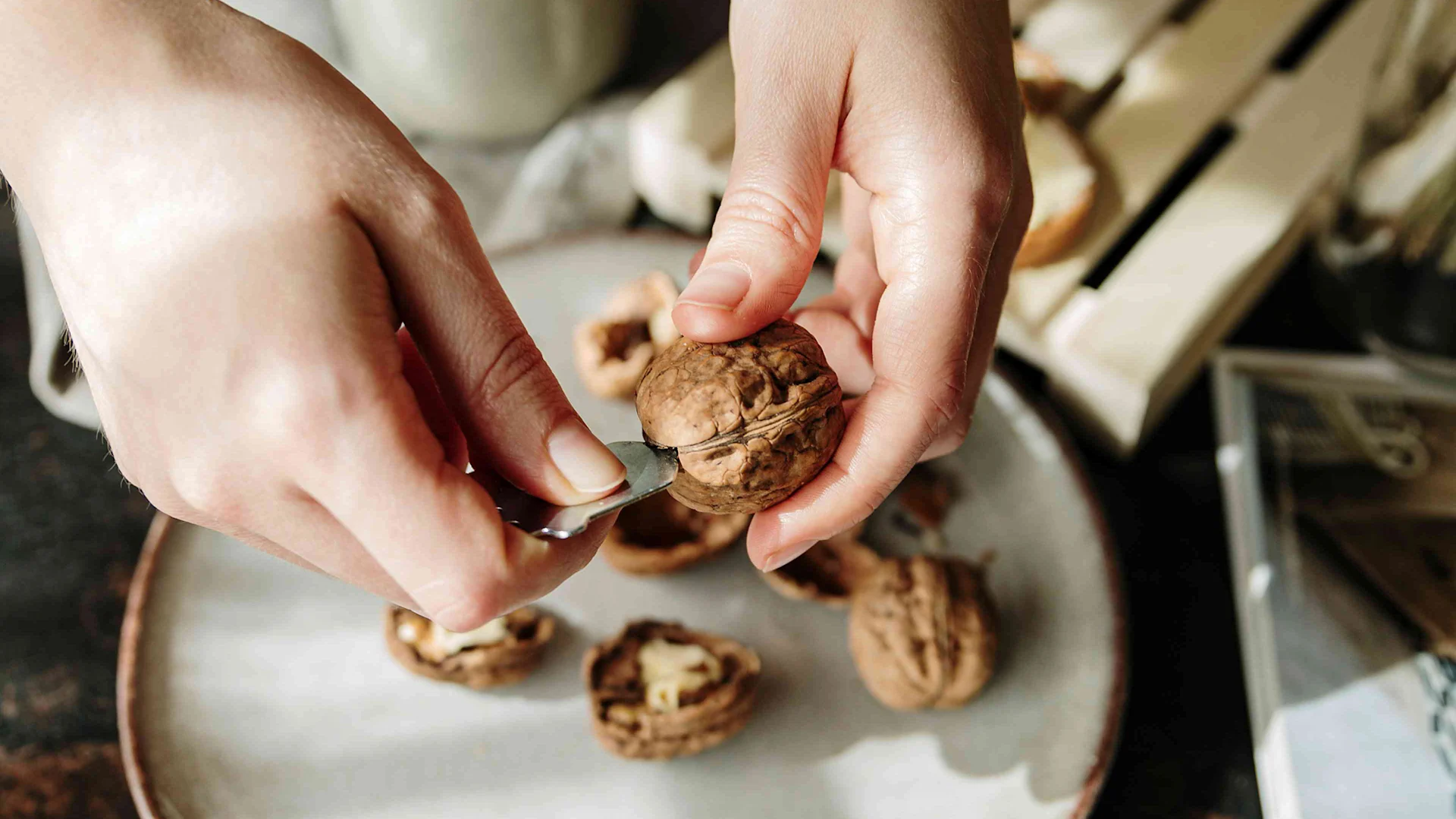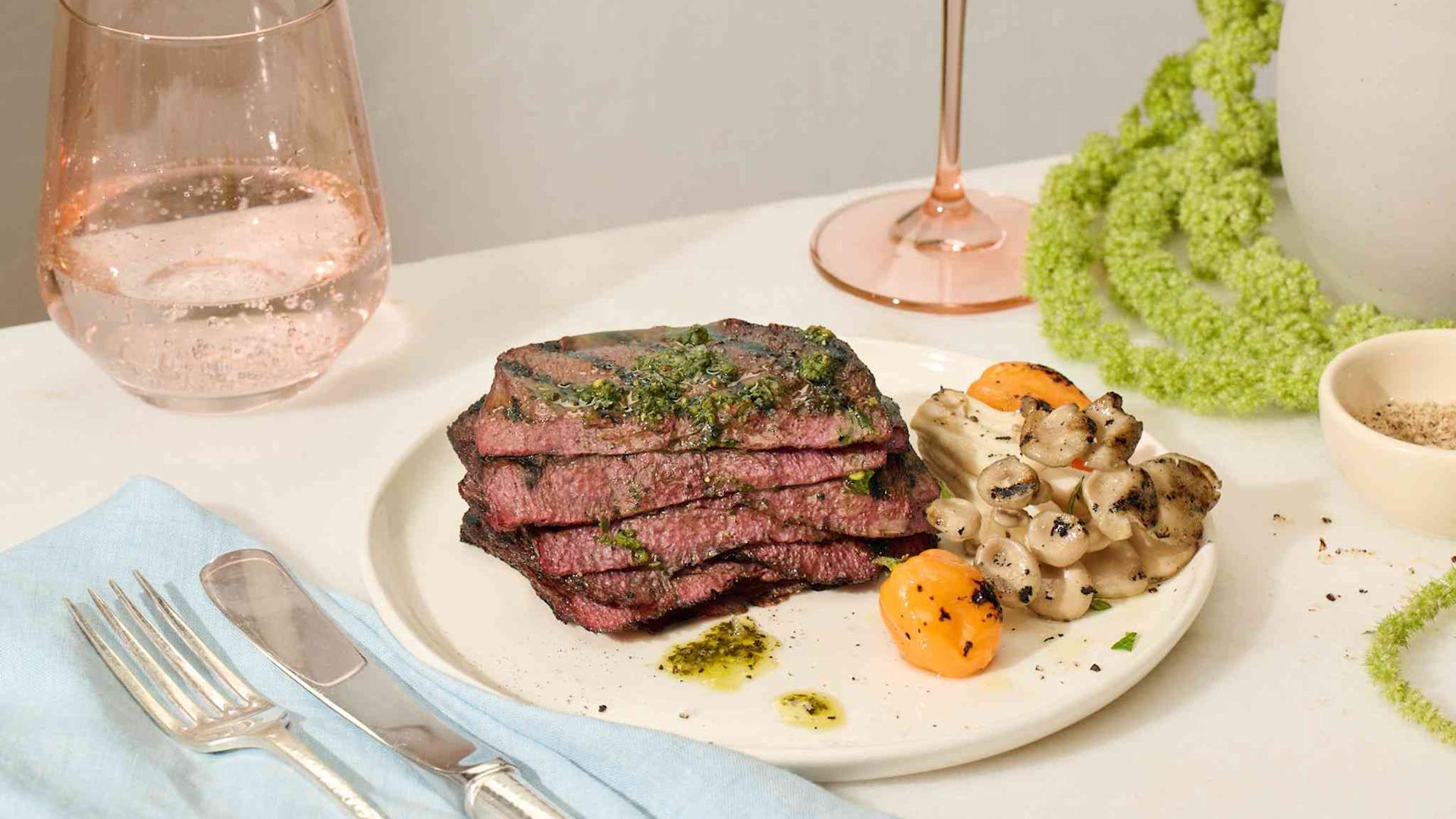
Sustainable products
How to crack nuts without a nutcracker
Got a bagful of nuts, but no nutcracker? With our hacks you won’t even need one!
navigation

Animal welfare
In an effort to avoid animal suffering and protect the environment, the food industry has been working to create cultured meat for many years. The first such products have already been approved for sale in Singapore and the United States. However, it will still take a little longer in Switzerland. We answer the most important questions.
A stem cell is taken from an animal using biopsy and specialised cells are then developed from it in a bioreactor. These multiply into meat in a nutrient solution with the aid of growth hormones. From the moment the cells are removed, it takes about two weeks for enough meat to make a burger patty, for example, to form in the bioreactor. These pieces of meat are given extra structure through the addition of plant proteins in order to obtain the familiar consistency. In the long term, the aim is to also produce steaks and fish fillets in this way.
The technology is on the right track, but the costs are still too high. In particular, the nutrient in which the cells grow into meat is still far too expensive. Fortunately, new technologies are becoming cheaper and cheaper over time. The price of cultivated meat should more or less match that of today's industrially produced meat in about seven years' time. Regulatory approval for sale is another challenge. The Swiss Protein Association, with which Migros is also affiliated, aims to help here.
The initial cells are removed without harming the animal. In most cases, a single procedure is sufficient because this generates what is known as an immortal cell line. A serum derived from animal paws is still often used for the nutrient solution employed during the development phase. However, a number of companies are already replacing these growth hormones entirely with plant-based products - and most of the others are keen to follow suit. Migros has invested in two companies that already do this, thus ruling out that it will sell cultured meat produced with animal serum.
The climate is protected because fewer animals are required and meat can be produced locally, so it doesn't have to be imported from faraway countries. You can also make such meat leaner and therefore healthier from the outset, although this has its limits because fat is an important element in the taste. You can offer many different types of meat - even from "exotic" creatures - without thereby harming a single animal. The meat is sterile when it comes out of the bioreactor, it has no parasites and isn't contaminated by any environmental factors. What's more, there's no "waste" because only the genuinely demanded cuts of meat are produced.
The first products have been approved in Singapore and the US, but they are still significantly more expensive than regular meat. Applications for approval in Europe are being prepared. It will therefore probably be several more years before such meat is on sale in Switzerland. The first available products will probably be a kind of beef fillet strip..
It's hard to say. At first, it will certainly be more expensive than comparable traditionally produced foods. In the catering sector, they will probably initially be on offer at exclusive restaurants. However, the aim is to ensure that they don't remain luxury products, but rather that they reach the masses. This is the only way in which we can successfully improve animal welfare, land use and our impact on the climate. In return, traditionally produced meat will hopefully one day be a luxury product.
You can find out more about our commitment to a wide range of sustainable products in the stories.